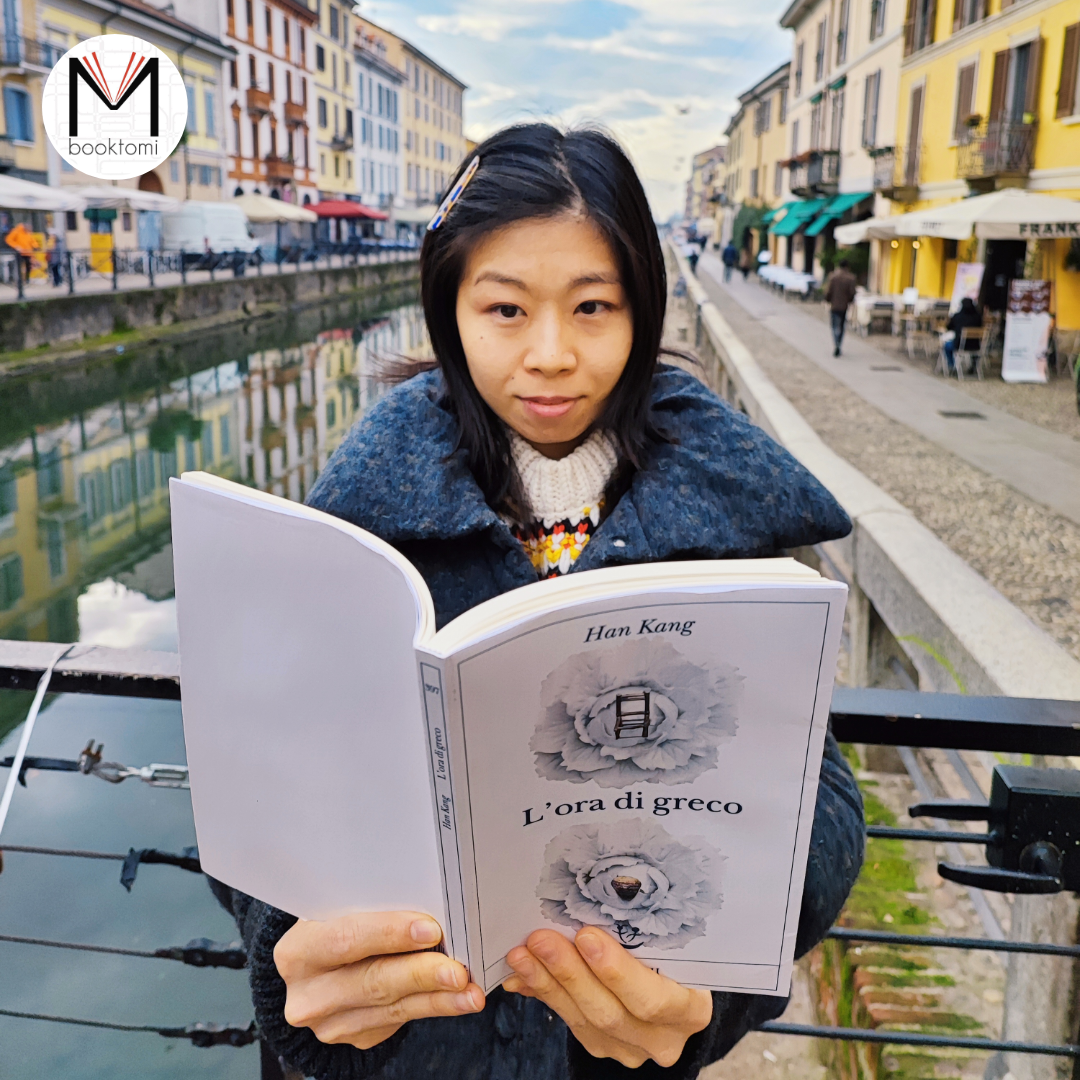“The chalk breaks in two and both halves fall to the ground.”
In a modern Seoul, where communication runs on all channels, the world of a woman suffering from mutism resulting from a series of traumas comes into contact with that of a man blinded by a degenerative disease. Two sensorial voids that will also reveal themselves to be two internal voids, linked to open wounds that they cannot heal, and which at the slightest emotional upheaval tear away ever greater pieces of their souls.
The last trauma in chronological order that the woman must survive is that of a difficult separation from her husband, which will also lead to the loss of custody of her son. She decides to find temporary shelter by going to Greek class to try to get her voice back (as had happened in the past with completely random episodes). The lessons are held by a visually impaired professor who, like her, lives in balance between two languages, between past and future, certain only of the dark future that awaits her.
The lack of one of the five senses leads to new forms of language between the two, and also with the reader, where the unsaid, the unsaid, the silence acquire new meanings. An increasingly sparse language, as evidenced by the text that becomes thinner as the pages flow, until it becomes a sigh of a few lines, a few words, testimony to the progressive loss of speech and sight of the two protagonists.
We think that this trajectory of the story, from the point of view of stylistic construction, is also linked to the author’s desire not to give names to the characters, which instead of making them more impersonal, makes them feel more intimate and close to the reader, indirectly improving their direct and indirect language.
Not an easy read, and it certainly doesn’t want to be, to which you shouldn’t dedicate spare time, but full time, because you find yourself having to deal with your own emotional voids. We certainly missed some nuances of the book due to our little knowledge of Korean literature and popular culture, but despite this, we really liked the book.
_____________________________________________________________________________________________________
Han Kang, L’ora di greco, Adelphi, Milano, 2023
Original edition: 희랍어 시간, Hyundae Munhak, Seoul, 2011



